Manplay.com Gives You The Info You Need About Louisiana Gay Marriage
We here at Manplay.com are smarter than you think, which is why we think you should take a look at New Hampshire in order to get some more history on gay marriage in the state. There’s plenty more you could know about gay marriage. We will tell it like it is and ensure you know where to go and what to expect. Manplay.com is here to help you.
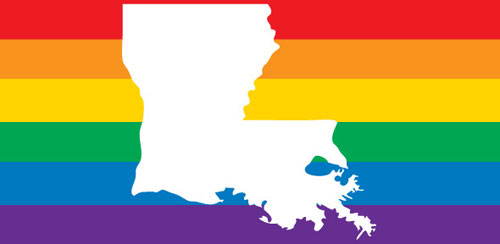
Louisiana Gay Marriage History
Louisiana is a state with a vibrant culture and large gay community. However it has some obstacles that have made the pursuit of gay rights extremely difficult. Once Louisiana was annexed by the United States, in 1805, gay sex and gay relationships were considered to be sodomy. This law stayed in place until 2003 when lawmakers determined it was unethical, unreasonable and could not be policed. However, when it came to gay marriage, this still proved to be an issue. Due to the strong religious background in the state, gay marriage has a support percentage of roughly 30% with a strong 60% who oppose it. While roughly 10% of voters don’t have any opinion on the matter. These numbers might be alarming, but now that gay marriage is fully legal in all states public opinion on the matter unfortunately cannot trump the constitution, especially regarding due process, equal protection as well as some of the most basic human rights that come with a civil union. This has been the primary point of many lawsuits that aim to uplift any laws banning Louisiana gay marriage. Manplay.com will give you a history of Louisiana gay marriage, its current status, along with what you can do to get married and have the fun you need.
Opposition To Gay Marriage In Louisiana
Despite the current law that makes Louisiana gay marriage totally legal, the state has faced an ongoing battle with gay rights activists who have aimed to change to law so that same sex couples may be recognized. In 1988 and ’99, Louisiana’s civil code was altered and shifted to ensure that there was no way that same sex couples could be recognized legally. This included those who were planning or contracting to marry and it also included the law that Louisiana could not and would not recognize gay marriage from other jurisdictions. This was an enormous blow to gay rights in the state and created rifts in many of the more progressive parts of the state. Then, in 2004, the Louisiana voters approved a State Amendment to the constitution that made the claim marriage must remain traditional. This meant that marriage was expressly between a man and a woman. The amendment had a 78% support ratio. This proved to be a difficult feature for gay rights in the state.
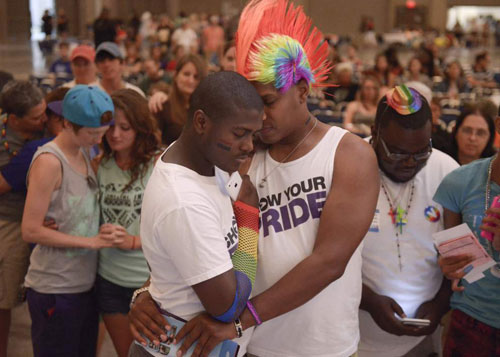
Recognition Of Gay Marriage Outside of Louisiana
In 2013, there was trial a involving a lesbian couple who had married in California. Their marriage was not recognized in Louisiana and they were attempting to ensure that one partner could be recognized as the legal mother to the biological child of the other partner. The case was titled Constanza v. Caldwell and they were eventually granted their rights by Judicial District Court Judge Edward Rubin. He also found that denying their rights as parents was an unconstitutional act because it did not give the couple due process nor did it offer equal protection as any American resident has the right to have. Soon after the Supreme Court’s decision on the Constanza v. Caldwell case, it was reversed and the couple was granted all rights with no legal opposition.
Robicheaux v. George in 2013
Relative to the case outlined above, Robicheaux v. George was a lawsuit that was brought about in the Eastern District of Louisiana and it was about same sex marriages from other jurisdictions being recognized. The couple had been married in Iowa in 2012. Their certificate for marriage was not recognized and they were denied typical privileges that many heterosexual couples enjoyed, such as joint bank accounts, health insurance and so on. The Forum for Equality and the many LGBT community groups joined the lawsuit, on behalf of plaintiffs who were denied marriage licenses and others who were not able to maintain a status of being married. However, District Judge Martin Feldman who headed the case determined that "Louisiana has a legitimate interest…whether obsolete in the opinion of some, or not, in the opinion of there…in linking children to an intact family formed by their two biological parents. The concept of gay marriage was inconceivable until very recently and it is a clash between convictions regarding the value of state decisions reached by way of the democratic process…" He finished his statement with claiming that Louisiana gay marriage has no fundamental rights in the first place. This concept of gay marriage being inconceivable is interesting to consider and discuss because it is a prime example of much of the thought that has gone into laws banning same sex marriage. Feldman furthered his comments with the statement "The Court is persuaded that a meaning of what is marriage that has endured in history for thousands of years, and prevails in a majority of states today, is not universally irrational on the constitutional grid." He referred to gay marriage as an ‘innate pathos’, thus cementing our understanding of his personal beliefs leaking into his ruling on the case.
Louisiana Gay Marriage Statistics
Statistics have determined that there seems to be a general lack of support for Louisiana gay marriage. In February 2013, it was determined that roughly 29% of voters support gay marriage. Then Public Policy Research released a poll in 2014, showing that only 41.7% of voters supported gay marriage in the state. Harper Polling determined that 21% of voters supported gay marriage with 60% not supporting. The most recent New York times poll has determined that only 39% of voters support gay marriage while 46% oppose it. There is a rough average of 30% of voters who support gay marriage in the state. These numbers are alarming in relation to gay rights in Louisiana, however it is there to stay and no parish, county or district court can stand in the way.
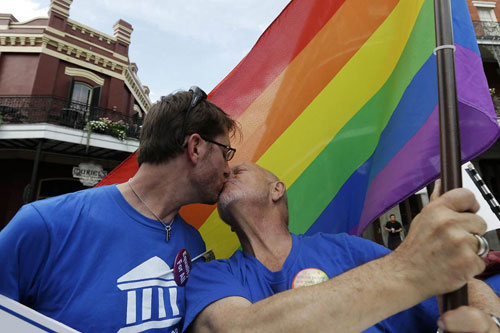
The Supreme Court Legalized Gay Marriage
Like many other states in the Southern United States, Louisiana gay marriage has faced many hurtles and it was finally recognized by law through the Supreme Court ruling in June 2015. The famous Obergefell v. Hodges case brought national attention to the issue of gay marriage and it was finally deemed unconstitutional to bar same sex couples from the same rights as heterosexual couples. After some issues with bureaucracy as well as some technicalities, the state finally began to issue licenses in the summer of 2015, under orders of Governor Bobby Jindal.
The Current And Future Status of Louisiana Gay Marriage
Despite setbacks, such as the one outlined above, the Supreme Court’s ruling on June 26th 2015, did have an effect on the case and Feldman finally ruled in favour of the plaintiffs. This proved to be a great victory for gay rights in Louisiana. Yet, even with the supreme court’s ruling, several jurisdictions and parishes throughout the state refused to issue marriage licenses, however this was overturned, and by law, they were forced to issue licenses. These jurisdictions cited religious beliefs as the reason why they were not issuing marriage licenses. With these points in mind, why not peruse a local opinion about Louisiana gay marriage?
Information About Louisiana Gay Marriage
There is plenty of information online that will give you some more insight into gay friendly wedding planners, where you can get a license and plenty more:
1. Gay Friendly Stays In Louisiana
3. Directory of Places to Get Your Marriage License
4. Officiants For Gay Weddings in Louisiana




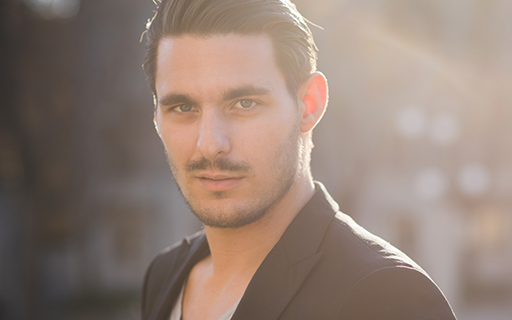







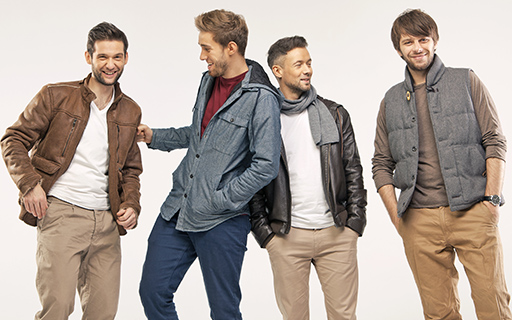











































































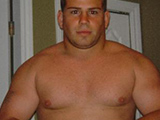


























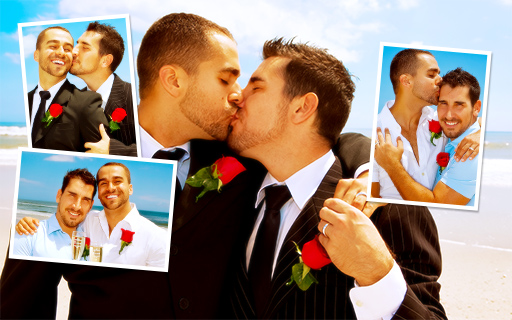

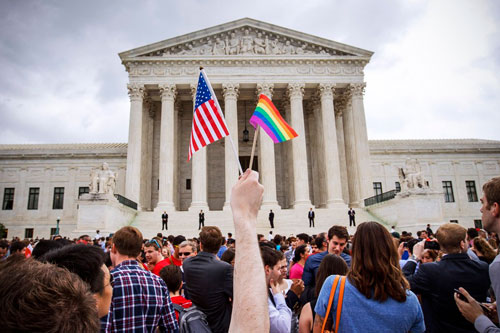
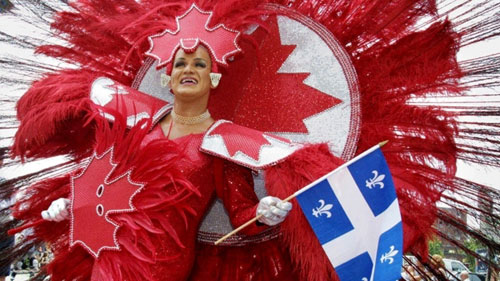



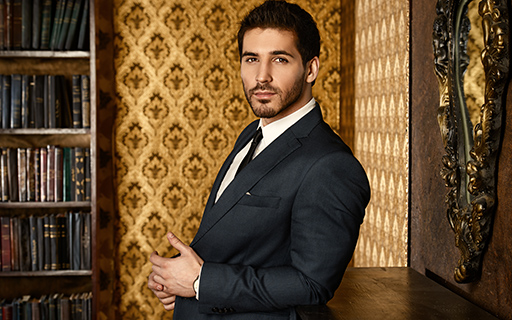

Comments